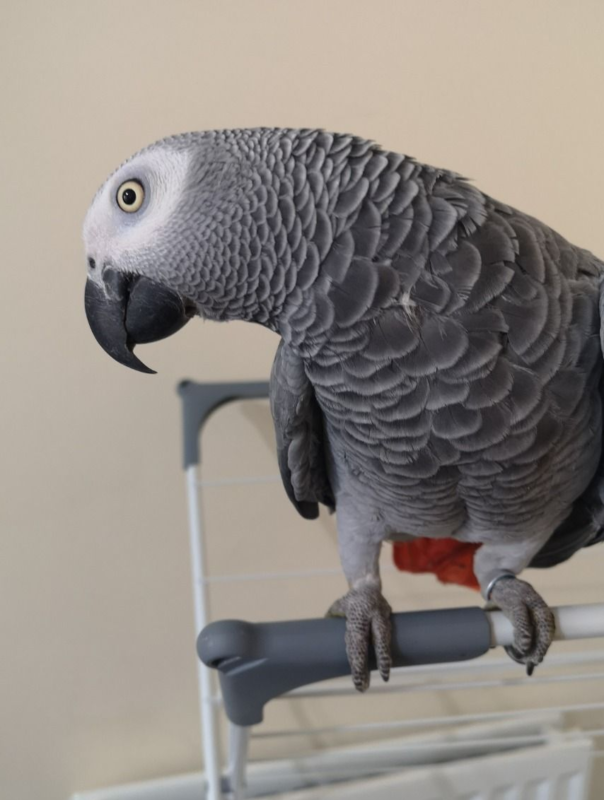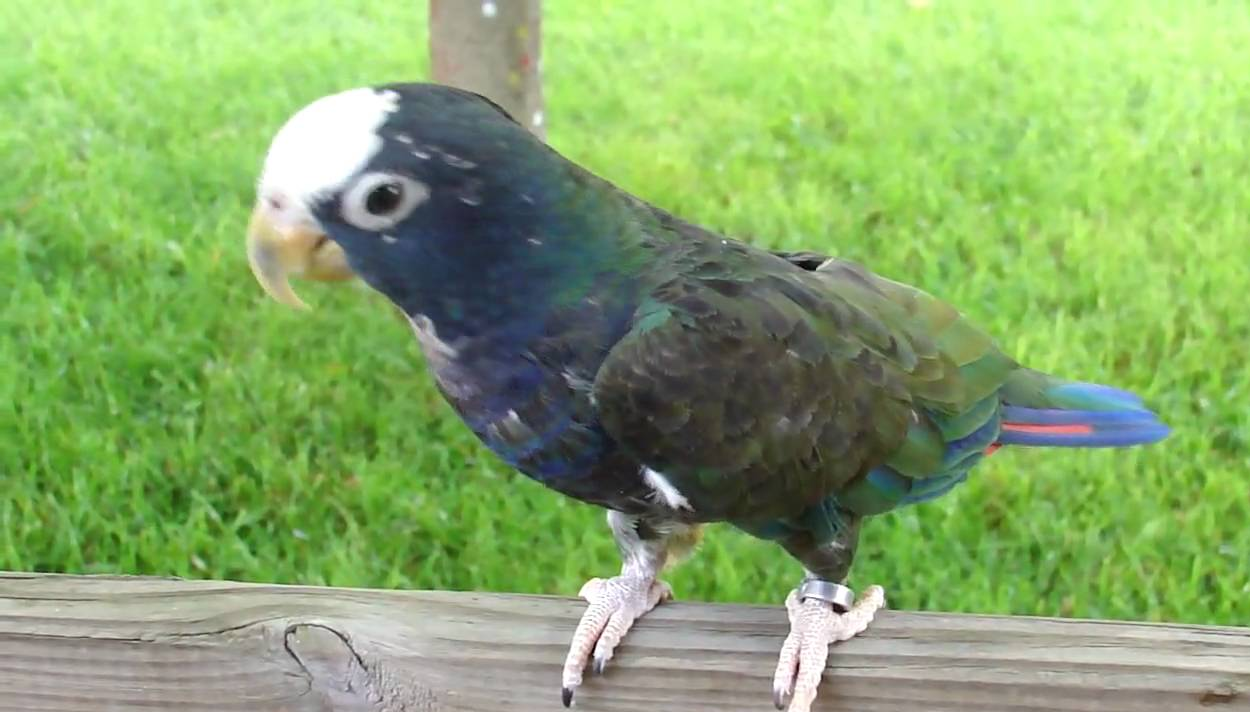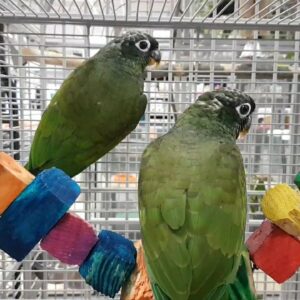White-Crowned Pionus
$2,500.00 Original price was: $2,500.00.$1,600.00Current price is: $1,600.00.
The White-Crowned Pionus (Pionus senilis) also known as the White-Crowned Pionus, is a small parrot found in eastern Mexico and western Panama. Often seen with white foreheads and crowns, the extent of white on the head gives no indication of gender, as there can be considerable variance in individuals. The throat can also have some white and the neck and breast are often dull dark blue. The belly can display light green, and the upper body parts are dark green, with a yellow-olive shoulder patch. In-flight, the blue underwings and red vent are conspicuous features. Young birds have little blue on the head and neck or red on the undertail, and the crown feathers are green-edged with white.
Sexing: DNA testing is required to identify gender.
Size: about 9-10 inches in length and 8 ounces in weight.
Lifespan: About 30 years in captivity
Behavior, Care, and Temperament: In nature, the white-crowned parrot feeds in the social flocks of 30-50 birds. White-crowned Pionus can be unobtrusive when feeding since it is slow-moving, usually silent, and keeps in the canopy. However, at rest, it often perches conspicuously at the top of an unopened palm frond.
These intelligent and curious little birds do have a somewhat stronger personality than most other Pionus species, but with good attention, they can make fabulous family pets! They are fun and goofy, while still being docile and gentle most of the time. They will entertain you with their little quirks and funny chit chats, and will absolutely enjoy scratches, and games. In fact, as intelligent pet birds, White Capped Pionus thrive on social interaction and mental stimulation that they get from playing and learning tricks.
Large crowds are not their favorites, and they tend to get attached to a single person whom they trust the most or the household in general. Like most other parrots, mimicking is also a possible trait of White Capped Pionus. Usually, they will learn a few simple words like their own names and the persons in the house, while they’ll pick up more common sounds to repeat like whistles, whispers, beeps, and animal sounds.
In captivity, you should provide a minimum of 3 to 4 hours of play and exercise daily time out of their cage in a protected area for good stimulation and health. They can talk and will frequently speak around their owners but may become quieter around strangers.
Minimum Cage Size: 24″L x 24″W x 30″H – A roomy cage is recommended unless your Pionus is to be let out for a minimum of 3-4 hours each day. They are very curious and active birds that require a large amount of space compared to other birds their size. Many Pionus can spend a good deal of their time on a play top or parrot perch.
Breeding: The 3-6 white eggs are laid in an unlined nest, usually a natural cavity in a tree or a hollow palm stub. During the breeding season, the male can be a bit aggressive when mating.
Diet: Lafeber Classic Nutri-Berries for Parrots along with a large variety of vegetables with occasional fruits. birds for sale near me.
Be the first to review “White-Crowned Pionus” Cancel reply
Related products
Pionus Parrots
Pionus Parrots





Reviews
There are no reviews yet.